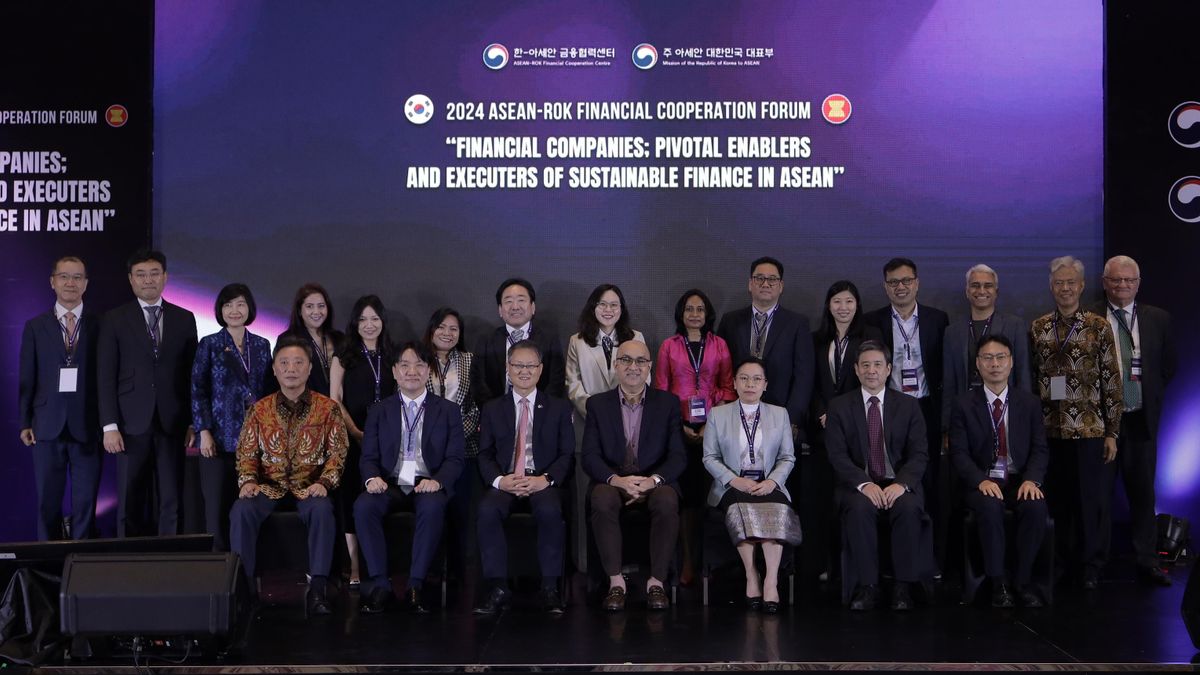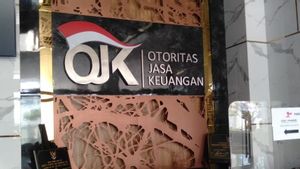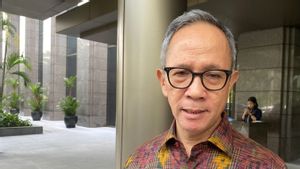JAKARTA - ASEAN-ROK (Republic of Korea) Financial Cooperation Center held the 2024 ASEAN-ROK Financial Cooperation Forum.
This forum is held with the theme of the role of financial and banking business entities as a means of promoting sustainable development in ASEAN, especially in facilitating sustainable financial growth.
In his opening remarks, the Ambassador of the Republic of Korea to ASEAN, Lee Jang-keun, said that in this forum experts in their respective fields gathered in one place to ensure sustainable development in ASEAN and discussed the role of financial business entities in sustainable development.
"For the development of the sustainable financial sector, the Korea-ASEAN partnership, which has been built in various sectors over the years, must also be strengthened and practiced in the financial sector," he said, Friday, July 5.
Present on the same occasion, Advisor from the Asian Development Bank (ADB), Satoru Yamadera said, although the sustainable bond market is growing very rapidly in ASEAN, it is still dominated by the public sector, while sustainable financial practices in the private sector, especially in the private banking sector, are still limited. This project can be a milestone in the history of sustainable development and promotion of environmental protection in the ASEAN region," he said.
FSC Standing Commissioner Lee Hyung Ju said the financial sector should play a key role in this transformation.
"Achieving carbon neutrality means a fundamental change from fossil fuel-based economy. According to the International Energy Agency, this is estimated to cost around 57 trillion US dollars globally," Lee said in his remarks, Friday, July 5.
Lee added that mobilizing capital on this scale requires a strong financial mechanism. In addition, global funding needs to exceed funding. It also includes changing the way the financial industry runs its business and improving people's behavior in a more environmentally friendly direction.
Lee said, in 2020, the Korean government outlined its vision of achieving carbon neutrality by 2050 and had implemented extensive policies in all sectors.
"The Financial Services Commission leads the initiative that focuses on three main pillars. First, the financing rate. In March, the FSC announced financial support packages to achieve carbon neutrality by 2030 and $330 billion will be provided to finance the low-carbon transition," Lee explained.
Lee said by 2030, six commercial banks would donate USD 6.5 billion to the formation of the Future Energy Fund which aims to increase investment in the renewable energy industry.
Polish financial institutions will increase the funds with an additional 10 billion dolaes through subordination loans.
"Together with these funds, a joint government-private investment of 2.1 billion will be used to develop innovative climate technology," he continued.
He added that the second pillar is to get financial support. The climate crisis requires changes in the financial sector itself. When companies face higher costs during the low-carbon transition, financial institutions must adapt to mitigate the decline in profitability and increase credit risk.
"Finally, we are trying to build environmentally friendly infrastructure. The Korean government sets a taxonomy in 2021 and issues guidelines regarding environmentally friendly destinations the following year," Lee explained.
In line with Lee, Chairman of the Board of Commissioners of the Financial Services Authority, Mahendra Siregar, said that the OJK had developed and issued Indonesia's taxonomy for sustainable finance which considered the need for a gradual energy transition.
SEE ALSO:
"This taxonomy is developed by implementing strong governance and emphasizing credibility and interoperability, especially with the ASEAN taxonomy," he said.
The former Deputy Minister of Foreign Affairs of Indonesia also explained that with the issuance of the taxonomy, Indonesia has a sustainability classification standard which is the main standard in classifying business activities that support sustainable efforts and achieving the NZE Indonesia transition.
The first phase of the taxonomy focuses on energy transition and investment in important minerals that support the energy transition. Meanwhile, the second phase of the taxonomy that is currently being completed will focus more on other sectors.
The English, Chinese, Japanese, Arabic, and French versions are automatically generated by the AI. So there may still be inaccuracies in translating, please always see Indonesian as our main language. (system supported by DigitalSiber.id)
















